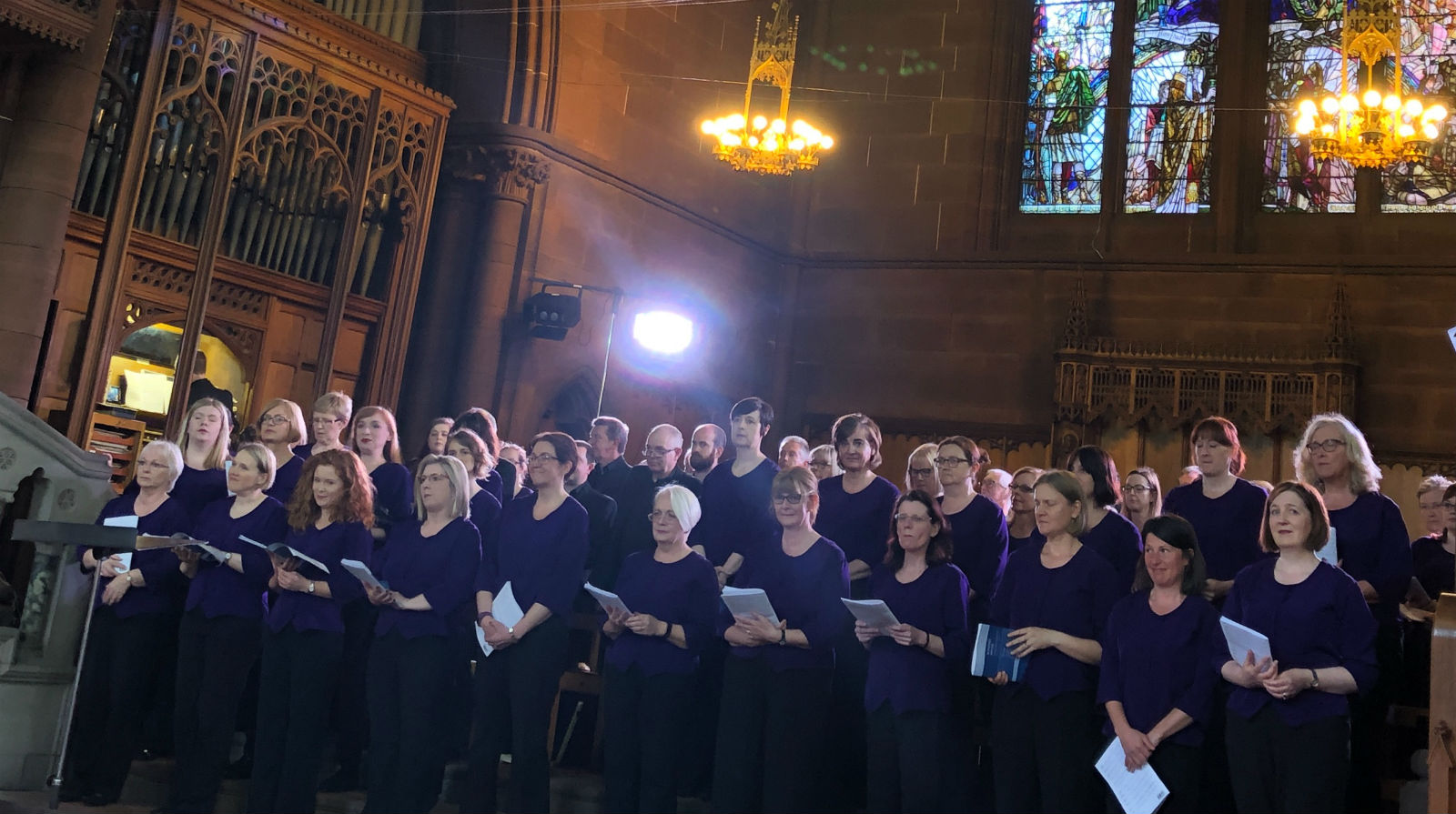Maurice Duruflé is famous for his reconciliation of ancient Gregorian chants with the freer meters of modern music. His Requiem, completed in 1947, is now, several decades later, recognised as a masterpiece of religious music. Following Fauré, he combines seven parts of the traditional Requiem Mass, although largely discarding the terrifying Dies Ira in favour of the gentler Pie Jesu. Like Fauré he adds Libera Me from the Burial Rite, and also In Paradisum, a prayer of ascent into paradise. The overall effect is of peace, hope and rest, though not to the exclusion of the anguish of man facing the mystery of his last ending.
Duruflé scored three different accompaniments to this work: 1) an original version for large orchestra, 2) a version for solo organ accompaniment, 3) a smaller orchestral version, with trumpets, timpani, harp, strings and organ. The City of Glasgow Chorus chose the second version for this performance in Hyndland Church, with David Hamilton on the organ.
The Chorus is a long established (founded 1983) independent choral group with a fine reputation for tackling difficult, less familiar works by major composers. Its conductor and Music Director, Graham Taylor, who has been recognised for his considerable services to music in Glasgow, leads this performance. The choir sing beautifully, excelling in the quieter, more peaceful, sometimes haunting passages, but occasionally falling a little short where gigantic crescendos and great passion are called for, as in later parts of the Kyrie, the Sanctus and Libera Me. In the Pie Jesu, the one part of the work where Duruflé had specified a solo singer (a mezzo-soprano and, where there is orchestral accompaniment, a cello), the part is sung here by a small group of contraltos, sung very well, but without the power of an accomplished soloist. This tends to blur the distinction between the more famous Pie Jesu of Faure’s Requiem, with which Duruflé’s work is often compared. Faure’s Pie Jesu is written for a boy or a soprano, emphasising purity and innocence, whereas in Durufle’s Requiem it is, as is maybe appropriate for a 1947 post-war creation, the mature expression of deep sorrow and loss.
The Chorus’ second piece is Sunrise Mass by the young Norwegian composer Ola Gjeilo. This is a wonderful imaginative piece which takes us on a journey from outer space (Kyrie – The Spheres), through the wonders of our natural environment (Gloria – Sunrise), to our busy man-made environment (Credo – the City) and the reality of human existence (Sanctus and Agnus Die – Identity and the Ground). The choir performs this challenging work with confidence, moving from the spiritual and contemplative Spheres, through subtle dreamlike incantation changing to joyous Sunrise, through heavy, dark and relentless City, searching and thoughtful Identity and the peace, tranquility and relief of Ground. The Sunrise Mass is a small treasure, beautifully interpreted by the City of Glasgow Chorus.
